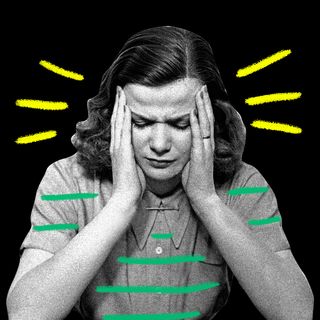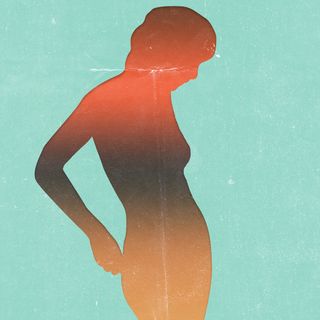Women have reported more sleep troubles and more symptoms of anxiety and depression than men during the Covid19 era, a study has found — revealing differences in pandemic experiences linked to intensified gender roles.
A survey of more than 500 people in Canada revealed that while mental health worsened for both men and women during the pandemic’s peak, the effect was greater on women, who reported experiencing more symptoms of anxiety and depression, as well as greater distress, both in terms of severity and frequency.
“Generally, the study found women reporting more anxiety and depression. Their symptoms worsened over time and with greater length of the isolation period,” Dr. Veronica Guadagni, from the department of physiology and pharmacology at the University of Calgary, Canada, and first author of the study, said in a statement.
Women surveyed also displayed increased levels of empathy — but it was associated with greater anxiety, depression, and trauma.
The researchers say their findings may reflect gender norms that position women as households’ primary caregivers, globally.
Related on The Swaddle:
Data Gaps on Sex Differences in Covid19 Infections Could Hamper Treatment, Vaccination, Report Says
“I was not surprised by the findings; women are the ones who carry the additional load. Taking care of family and critical situations has always been a huge load on women and females,” Giuseppe Iaria, a professor of psychology at the University of Calgary and co-author of the study, said in a statement.
The findings led the researchers to hypothesize that the higher levels of empathy in women could mean they would be more likely to follow public health guidelines to prevent the spread of Covid19. They suggest future research focuses on validating or dismissing that hypothesis.
Dr. Guadagni noted that findings from the study could be useful in terms of designing targeted psychological interventions based on sex and gender.
“Clinicians, but also employers and organizations, in the future should be aware of how gender role impacts the load that individuals carry in their families and in society in general, and should consider how the mental health status of these individuals can be differently affected,” she told PsychHub360 in an interview.
Published last month in Frontiers in Global Women’s Health, the study analyzed data from 573 participants in Canada, collected between March 23 and June 7, 2020. The participants were asked completed six questionnaires designed to assess their quality of sleep, besides symptoms of insomnia, depression, anxiety, trauma, and empathy for others.




